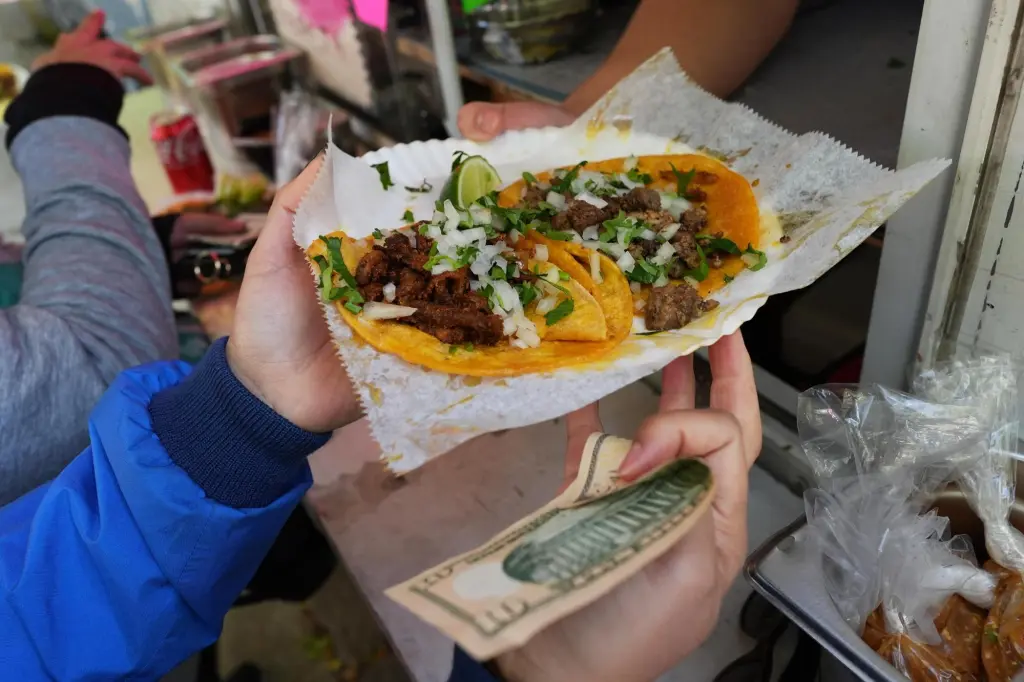Copyright St. Paul Pioneer Press

To place an obituary, please include the information from the obituary checklist below in an email to obits@pioneerpress.com. There is no option to place them through our website at this time. Feel free to contact our obituary desk at 651-228-5263 with any questions. General Information: Your full name, Address (City, State, Zip Code), Phone number, And an alternate phone number (if any) Obituary Specification: Name of Deceased, Obituary Text, A photo in a JPEG or PDF file is preferable, TIF and other files are accepted, we will contact you if there are any issues with the photo. Ad Run dates There is a discount for running more than one day, but this must be scheduled on the first run date to apply. If a photo is used, it must be used for both days for the discount to apply, contact us for more information. Policies: Verification of Death: In order to publish obituaries a name and phone number of funeral home/cremation society is required. We must contact the funeral home/cremation society handling the arrangements during their business hours to verify the death. If the body of the deceased has been donated to the University of Minnesota Anatomy Bequest Program, or a similar program, their phone number is required for verification. Please allow enough time to contact them especially during their limited weekend hours. A death certificate is also acceptable for this purpose but only one of these two options are necessary. Guestbook and Outside Websites: We are not allowed to reference other media sources with a guestbook or an obituary placed elsewhere when placing an obituary in print and online. We may place a website for a funeral home or a family email for contact instead; contact us with any questions regarding this matter. Obituary Process: Once your submission is completed, we will fax or email a proof for review prior to publication in the newspaper. This proof includes price and days the notice is scheduled to appear. Please review the proof carefully. We must be notified of errors or changes before the notice appears in the Pioneer Press based on each day’s deadlines. After publication, we will not be responsible for errors that may occur after final proofing. Online: Changes to an online obituary can be handled through the obituary desk. Call us with further questions. Payment Procedure: Pre-payment is required for all obituary notices prior to publication by the deadline specified below in our deadline schedule. Please call 651-228-5263 with your payment information after you have received the proof and approved its contents. Credit Card: Payment accepted by phone only due to PCI (Payment Card Industry) regulations EFT: Check by phone. Please provide your routing number and account number. Rates: The minimum charge is $162 for the first 12 lines. Every line after the first 12 is $12. If the ad is under 12 lines it will be charged the minimum rate of $162. Obituaries including more than 40 lines will receive a 7.5% discount per line. On a second run date, receive a 20% discount off both the first and second placement. Place three obituaries and the third placement will be free of charge. Each photo published is $125 per day. For example: 2 photos in the paper on 2 days would be 4 photo charges at $500. Deadlines: Please follow deadline times to ensure your obituary is published on the day requested. Hours Deadline (no exceptions) Ad Photos MEMORIAM (NON-OBITUARY) REQUEST Unlike an obituary, Memoriam submissions are remembrances of a loved one who has passed. The rates for a memoriam differ from obituaries. Please call or email us for more memoriam information Please call 651-228-5280 for more information. HOURS: Monday – Friday 8:00AM – 5:00PM (CLOSED WEEKENDS and HOLIDAYS) Please submit your memoriam ad to memoriams@pioneerpress.com or call 651-228-5280. By CHRISTINE FERNANDO, Associated Press CHICAGO (AP) — The cyclists arrive at sunrise, rolling through Chicago’s Latino neighborhoods and stopping at tamale carts, elote stands and candy stalls. They buy out every last item — every tamale, every corn cob, every bundle of sweets. Then they load up the food and deliver it to shelters and families in need. Since the start of a federal immigration crackdown that has led to more than 3,200 arrests in the Chicago metropolitan area, streets and storefronts in the city’s Latino neighborhoods have emptied out. Street vendors, fearing arrest, have been afraid to leave their homes to work. Local restaurants have struggled as customers stay home. But as fear spread, so did something else — neighbors stepping up for one another and finding creative ways to show up for vendors and restaurant owners. This includes a grassroots effort to organize so-called “buy out” events meant to allow vendors who fear being detained by immigration agents to go home early. Some Chicagoans have pooled money in their neighborhoods or through local organizations while others have simply bought out taco stands while on their way to work or tamale vendors outside their local bars. In Little Village, Rick Rosales, community organizer with Cycling x Solidarity, helps organize two of these “buy out” rides per week that typically support five street vendors each. “The vendors are often speechless,” Rosales said. “They’ll say, ‘I have a lot of tamales. You want all of them?’” Once, after the group bought out a tamale vendor’s cart, that man found them days later to say immigration agents were spotted on his block just hours after. “You saved my life,” Rosales said the man told them. “This is about food and joy and bike rides,” Rosales said. “But it’s also so incredibly high stakes because of the fear in our communities right now.” Street vendors targeted in immigration crackdown It’s hard to say how many street vendors have been targeted by federal immigration agents, said Maria Orozco, outreach organizer for the Street Vendors Association of Chicago, adding she knows of at least 10 who have been detained. In September, a tamale vendor was detained while selling outside a Home Depot, according to local advocates. Soon after, federal agents arrested a flower seller in the southwest neighborhood of Archer Heights. Then they came for a cotton candy vendor in the predominantly Mexican American Little Village. Immigration agents descended on the Swap-O-Rama flea market in October and detained more than a dozen people. And last week, over 100 residents in the Brighton Park neighborhood rallied to demand the release of their local tamalero. U.S. Immigration and Customs Enforcement, the Department of Homeland Security and U.S. Customs and Border Protection did not respond to multiple requests for comment. Orozco said losing these vendors is as much a cultural loss as an economic one, calling them part of the “fabric of our city.” She said they bring life, color and flavor to the city’s streets, preserving culinary traditions and building a sense of community — and they are beloved by neighbors. Street vendors who are afraid to work or are seeing drops in sales can apply to get financial support through the Street Vendors Association of Chicago. The group launched a GoFundMe with the goal of raising $300,000 to support street vendors. Orozco said local businesses have also hosted pop-up events where a certain percentage of proceeds go to street vendors. The organization has also helped connect vendors to people hoping to “buy them out,” Orozco said. “It’s been emotional to see,” she said. “The vendors themselves didn’t realize how much Chicagoans love and support them. None of us expected this.” Communities rally to support restaurants as customers dwindle As Alonso Zaragoza, executive administrator of his neighborhood advocacy group, drove through his predominantly Latino community of Belmont Cragin, he noticed restaurants were mostly empty and dark. Restaurants in majority-Latino communities have reported significant drops in sales since federal agents descended on the city in September. So Zaragoza began organizing restaurant crawls, drawing hundreds to struggling Latino-owned eateries. His previous event began at a taco and tamales restaurant and ended with a Mexican ice cream shop. Along the way, street cart vendors hawked elote, cotton candy and balloons as a local musical group played folk and bluegrass music. “The financial support for our businesses is needed more than ever now,” Zaragoza said. “It goes such a long way.” ‘A day without fear’ Delilah Martinez, a community organizer and owner of the Vault Gallerie in Pilsen, couldn’t stand the silence on her street anymore. She was used to seeing familiar faces on 18th Street — a woman selling candy with her baby strapped to her back, a paletero who smiled at her each afternoon. Then one week, they were gone. “It broke my heart,” Martinez said. “The streets felt empty. Our people were putting their freedom at risk just to work.” She began raising money online and started “Operation Buyout,” approaching vendors one by one to purchase everything they had. The first woman was shocked when Martinez handed her $500. “I just wanted her to have a day of rest, a day without fear,” Martinez said. Among those Martinez helped recently was a baker from Mexico City who arrived in Chicago 24 years ago. Each night, he works late, hands dusted with flour, kneading dough until they’re sore and aching. For those few quiet hours, after his four children are asleep, the world feels simpler. “There is a magic when I’m baking,” he said in Spanish. “I feel free. When I’m angry, I feel like the bread will absorb it. So I try to be happy and at peace, even when I know the reality is different.” By 3 a.m., he’s up again for his grocery store shift, juggling work and school drop-offs. For years, he’s sold birthday cakes and pan dulce “by word of mouth” from his small kitchen, dreaming of one day opening his own shop. But the baker has also heard the stories: street vendors arrested on residential streets and federal agents circling his historically Mexican American neighborhood of Pilsen. Two of his friends have been detained. When he hears sirens and helicopters, he feels “sick with fear.” “I’m afraid for my youngest daughter,” he said. “It would be horrible to leave her. … I can’t see myself without my children.” Martinez led the baker to a table and pulled off a black cloth. A silver, restaurant-grade mixer gleamed under the fluorescent light. Martinez also handed him an envelope with $1,500 gathered from neighbors hoping to help support him when he feels unsafe selling his baked goods on the street. The man’s hand flew up to cover his mouth. He kicked his legs and began to cry. “Thank you so much,” he said, clutching a mixer attachment to his chest. “It’s beautiful.”



